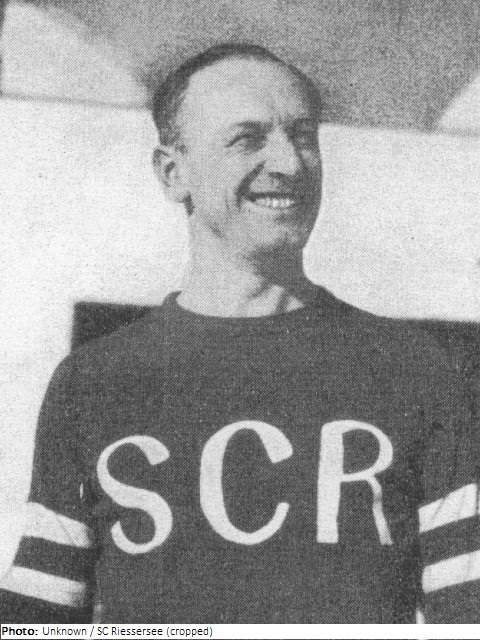
| Roles | Competed in Olympic Games |
|---|---|
| Sex | Male |
| Full name | Wolfgang Hellmuth Alexander•Kittel |
| Used name | Wolfgang•Kittel |
| Born | 11 November 1899 in Charlottenburg, Berlin (GER) |
| Died | 27 February 1967 (aged 67 years 3 months 16 days) in Bad Homburg vor der Höhe, Hessen (GER) |
| Affiliations | Berliner Schlittschuhclub, Berlin (GER) |
| NOC |  Germany Germany |
Wolfgang Kittel earned two international caps and was 1928 German Champion with Berliner SC. He was on the German team at St. Moritz in 1928, although there is some debate as to whether Kittel was a substitute or played in the game against Austria. In 1927 he was a member of the German team that won bronze at the European Championships.
Kittel lived a very eventful life. He attended a military school at Innsbruck and served in the Austrian Army in the battle of Isonzo. After the war, he joined a paramilitary Freikorps in the Baltic states. He studied at the Technical Universities of München and Wien (Vienna) but without graduating. In 1928 Kittel went to Barranquilla (Colombia), where he worked for SCADTA (Sociedad Colombo-Alemana de Transportes Aereos) until 1938. Due to health reasons, he returned to Germany in 1938, where he first dealt with the collection of documents on his non-Jewish ancestry and in 1939 got a job at Lufthansa.
He took over a representation in Bathurst, British West Gambia (today: Sierra Leone), and was deported to England after the beginning of World War II in 1939 - due to his position as German consul. From there he became another with the ship Arandora StarInterned in Canada deported. The ship was torpedoed and sunk by the German submarine U-47 under Captain Günther Prien on July 2, 1940. Kittel was saved by the Canadian destroyer St. Laurent. It was brought to England and shipped to Australia on July 12th with the HMT Dunera.
On board the Dunera there was a mutiny off Cape Town, which Kittel, according to his second wife Ingeborg Kittel (née Gerlach; 1921-2018), put down on the side of the crew. Thereupon he was sent to London on his word of honor in 1st class on an unaccompanied passenger steamer in order to be able to testify in the due court martial. Kittel’s whereabouts until Christmas 1940, which he spent at Dunluce House, Ramsey, on the Isle of Man, cannot be proven. German VIPs and diplomats were housed in this villa. There he met his future father-in-law Werner Gerlach, the German consul general in Reykjavík, Iceland, whom the British had deported to England with his family in May 1940. There learned to know Kittel his future second wife Ingeborg Gerlach, the elder daughter of Gerlach know. Kittel’s second marriage has two sons (Werner * 1945 and Gerd * 1948).
After internment by the British military (1945–47), he worked for a few years at the Matthes-Fischer-Werke, Düsseldorf-Oberkassel, a manufacturer of printed tin cans. From 1952-53 he was then employed by the newly founded Deutsche Lufthansa AG in Cologne. First active in Hamburg in 1954, he was General Manager for North and Central America in New York from 1955-59, and then on the board from 1960-65. Afterwards he was managing director of the German National Tourist Board until his death in 1967 in Bad Homburg. Kittel was awarded the Dwight D. Eisenhower Peace Medal in 1959 and the German Federal Cross of Merit with Star in 1964.
| Games | Discipline (Sport) / Event | NOC / Team | Pos | Medal | As | |
|---|---|---|---|---|---|---|
| 1928 Winter Olympics | Ice Hockey (Ice Hockey) |  GER GER |
Wolfgang Kittel | |||
| Ice Hockey, Men (Olympic) | Germany | =8 |